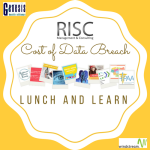Family Educational Rights and Privacy Act-34 CFR Part 99
‘The Family Educational Rights and Privacy Act of 1974 helps protect the privacy of student education records. The Act provides for the right to inspect and review education records, the right to seek to amend those records and to limit disclosure of information from the records. The intent of the legislation is to protect the rights of students and to ensure the privacy and accuracy of education records. The Act applies to all institutions that are the recipients of federal aid administered by the Secretary of Education.”
The next question you may have is to which educational agencies or institutions do these regulations apply? Well it applies to The educational institution provides educational services or instruction, or both, to students; and the agencies that have direct authorization and/or control over public elementary or secondary, or postsecondary educational institutions.
Educational records are directly related to the student and are either maintained by the institution or by third party or organization acting on behalf of the institution.
Records Not Considered As Educational Records
The following items are not considered educational records under FERPA:
- Private notes of individual staff or faculty; (NOT kept in student advising folders)
- Campus police records;
- Medical records;
- Statistical data compilations that contain no mention of personally identifiable information about any specific student.
What defines a student?
This answer is not as simple as the definition of a parent, because there are two types of students. A student and an eligible student.. Let’s look at what it means to be an eligible student first.
A student is defined as secondary or primary educational institutions and under the age of 18.
Why is this distinction important? Because once a student reaches postsecondary education a parent cannot access their educational records without the student’s consent.
It means parent or eligible student have a right to inspect and review their education records. Each institution will vary on the policy to obtain a student’s education records.
- Maintains education records on students who are or have been in attendance at any school of an educational agency or institution.
- They must comply with a request for access to records within a reasonable period of time, but not more than 45 days after it has received the request.
- They must respond to reasonable requests for explanations and interpretations of the records.
- If circumstances arises that prevent the parent or eligible student from exercising the right to inspect and review the student’s education records, the educational agency or institution, provide the parent or eligible student with a copy of the records requested and make other arrangements for the parent or eligible student to inspect and review the requested records.
- The educational agency or institution cannot destroy any education records if there is an outstanding request to inspect and review the records.
- Protect the student’s educational records from being released to anyone that doesn’t have authorization to view those records.
- They must not use the student’s social security number as an identification mark; students should have student ID numbers to identify them and those ID numbers should be protected.
- Institutions must have written permission from the student in order to release any information from a student’s educational record.
- Institutions may disclose directory information in the student’s educational record without the student’s consent.
- It is good policy for the institution to notify the student about such disclosure and to seek the written permission of the student to allow disclosure of any educational records including directory information.
- Institutions must not disclose non-directory information about students without their written consent except in very limited circumstances.
- Institutions should notify students about their rights under FERPA through annual publications.
- When in doubt, it is always advisable to err on the side of caution and to not release student educational records without first fully notifying the student about the disclosure.
Finally, the school should always seek a written consent from the student before disseminating educational records to third parties. The is much more information about FERPA on the department of education’s website http://www2.ed.gov/policy/gen/reg/ferpa/index.html
But we hope this gives you a basic understanding of FERPA and what it means to you.
M. Pawlak Principal at Planning101.com Guest blogger for RISC
Note: Planning101.com and RISC do not provide legal advice.
Individuals with questions regarding FERPA interpretation at a specific college/university should contact that institution’s Registrar or student services. Questions regarding K-12 FERPA issues should be directed to the building principal or the school district’s legal counsel.
References:
Federal Register, 34 CFR Part 99, Part V, Family Education Rights and Privacy, Final Rule.
Office of Family Policy Compliance, Family Education Rights and Privacy Act (FERPA).

















